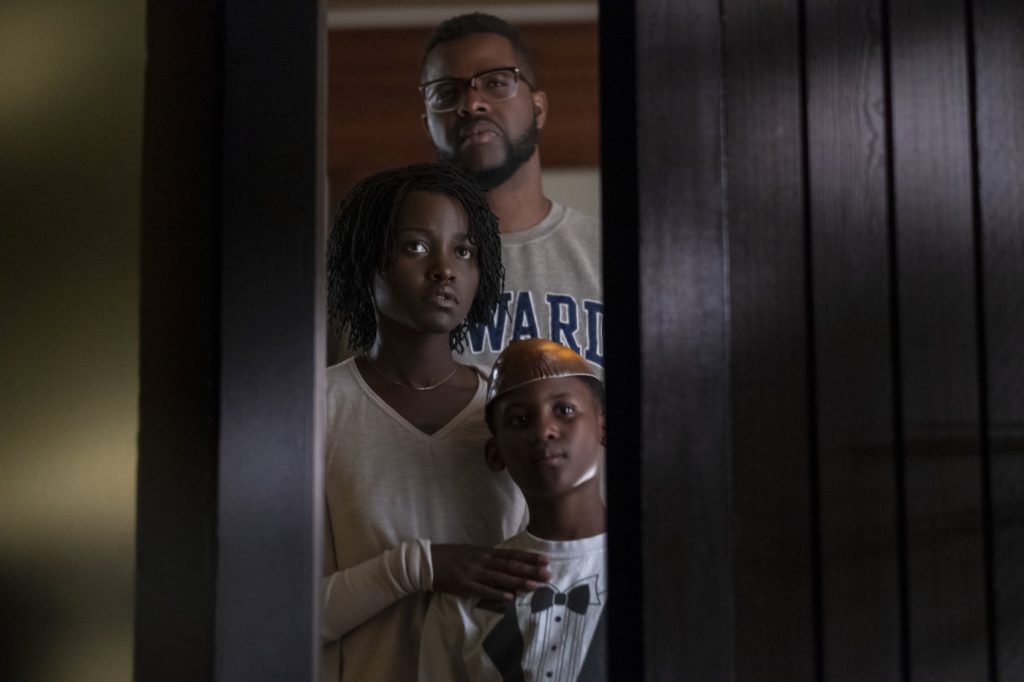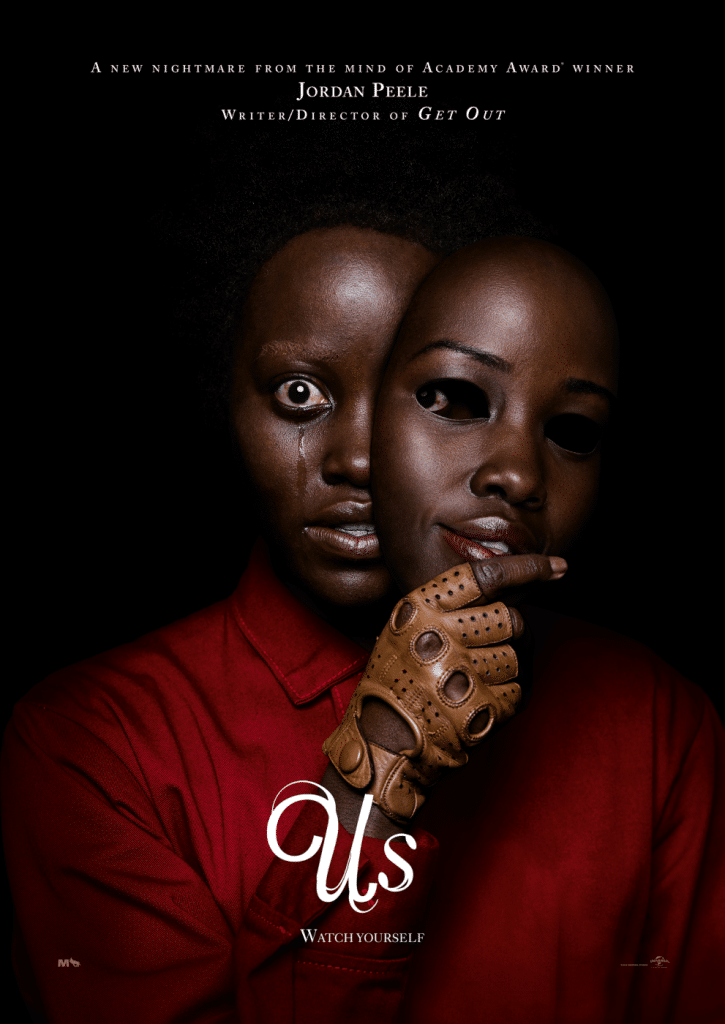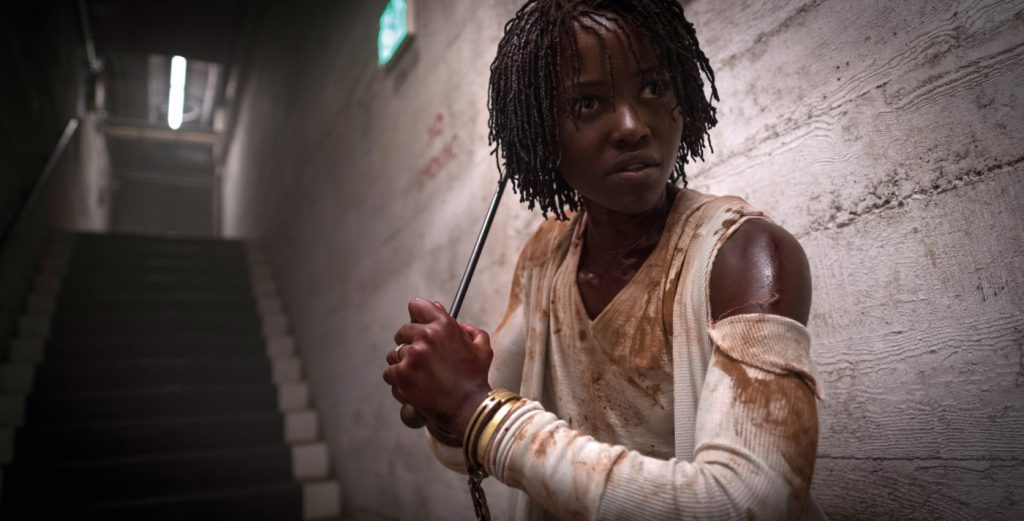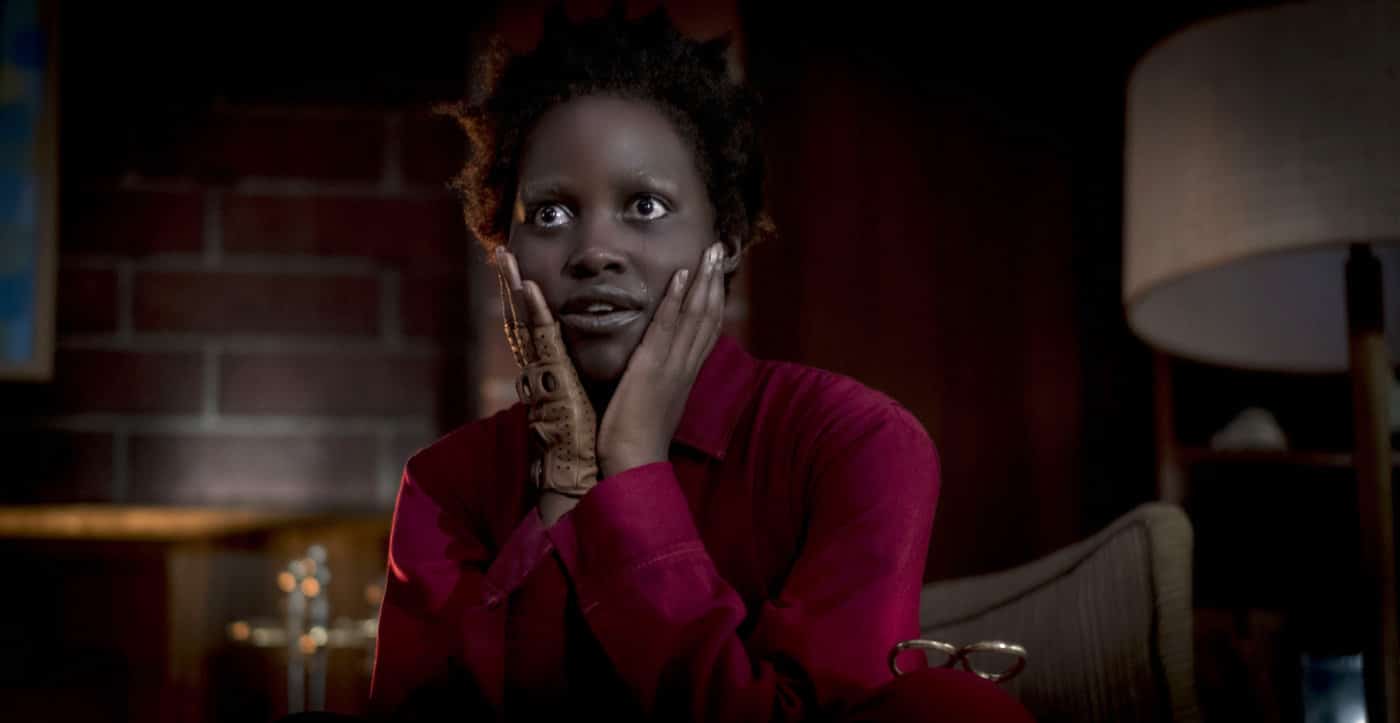
2017’s Get Out proved to be quite the milestone for 21st century cinema. Establishing TV funnyman Jordan Peele as a writer-director to be reckoned with, it proved to be that rare combination of both critical and commercial darling, making back its $5 million budget many, many times over (bravo to producer Jason Blum’s business model), and ultimately earning a Best Original Screenplay Oscar for Peele, with nominations in a slew of other categories. And of course, along with fellow 2017 blockbuster It, Get Out was roundly declared the launchpad for a new era of horror; although both films prompted some – to put it generously – misguided declarations that they weren’t really part of the genre. Frankly, Peele has to bear some of the blame for that given that he described his debut film as a “social thriller.” As such, it’s nice to see that, with the arrival of his sophomore feature, Peele has made a point of discouraging this pointless debate, bluntly declaring on Twitter, “Us is a horror movie.” And with It: Chapter 2 due later this year on top of Peele’s second, 2019 might well be when we find out whether this newly revitalised mainstream horror has real staying power.
Perhaps it goes without saying, but whether or not there’s really anything ‘new’ about this current wave of horror is questionable; I get the feeling it’s more to do with audience response, than anything the films or the filmmakers themselves are doing. But in any case, I’m pretty confident it’s here to stay, if Us is anything to go by at least. In a similar spirit to Get Out, but telling a very different story with a somewhat different tone, this is absolutely a worthy successor which proves Peele’s breakthrough was not a flash in the pan.

As with Get Out, Us is the kind of film for which it’s probably better to go in not knowing too much of the plot in advance, but here are the essentials: on a family summer vacation, Adelaide Wilson (Lupita Nyong’o) is battling some major psychological demons when, at the behest of her well-meaning but slightly oblivious husband Gabe (Winston Duke), they head out from the family lake house to the beach at Santa Cruz with their children Zora (Shahadi Wright Joseph) and Jason (Evan Alex). As we learn from the 1986-set prologue, Adelaide visited that very same beach as a child and a traumatic incident occurred, the specifics of which are unclear. Unsurprisingly, things don’t go so well this time either, and the family returns to the lake house with Adelaide’s emotional scars wide open. But as they’re all getting ready for bed, the family find an unexpected and unnerving sight outside their window: four mysterious figures all dressed in red – mother, father, daughter and son – bearing an uncanny resemblance to the Wilsons themselves.
I’ll avoid any further plot specifics, but naturally the first thing many will be looking out for is any common ground between Us and Get Out. There’s clearly a similar uncanny atmosphere, with use of familiar motifs (as the poster demonstrates, creepy tears are very much Peele’s trademark now), whilst an initially grounded sensibility gradually shifts to the wayside as things get ever weirder. And yes, Us is weird alright; again in common with Get Out, the central threat blurs genre boundaries in a way that might almost reinforce those ill-conceived “more than horror” arguments. But in common so much great horror, Get Out very much included, Us makes a point of delivering satisfying pay-off to its slow-burn build-up, and while it deals with sophisticated ideas in an intriguing way, it also makes a point of having fun along the way. Humour was by no means absent in Peele’s first film (who can forget Lil Rel “TS-motherfuckin’-A” Howery), but I’d say the writer-director’s comedy roots come to the forefront far more pointedly here, with plenty of big laughs to break the tension intermittently. One particular song cue provides an agreeable comedic counterpoint to what is otherwise one of the film’s most gruelling sequences; and no, I’m not referring to I Got 5 On It, although as hinted in the trailer this song is utilised repeatedly to surprising effect. Speaking of music, Get Out’s composer Michael Abels is back on score duties, and one can only hope his collaboration with Peele will continue; this could be a partnership between director and composer to rival Burton and Elfman, Argento and Goblin, or Carpenter and… er… Carpenter.
Still, Us is not simply Get Out Part 2, and there is one very distinct difference between the two: race, so pivotal to Peele’s first film, honestly doesn’t seem to be an issue this time around. Spooky stuff is going on, and we just so happen to be seeing it primarily from the perspective of a black family, but if there’s any underlying commentary on race relations I certainly can’t see it, not even in the scenes between the Wilsons and their white friends the Tylers (Elizabeth Moss and Tim Heidecker). Yet once again, Peele has no doubt succeeded in luring a largely straight, genre-averse audience into something with an extraordinarily bizarre central conceit. So much about Us feels so personal, so specific, and it is absolutely screaming to be decoded every which way, with any number of factors we might grab on to in search of clues (for myself, I find myself endlessly contemplating the VHS tapes stacked around the TV set in the opening shots, and how they hint at what’s to come). No doubt there are already way, way too many of those ghastly “ending explained” articles popping up all over the internet like pustulent spots on an adolescent forehead, so I’m certainly not about to venture into that territory here; but I will concede that, as many seem to be noting already, this might be a film you need to watch a couple of times to fully get your head around. Moreso than that, it may be a film that retains some mystery years, even decades later, destined to be a source of fascination for generations of film fans.

But for right now, just know that Us is most definitely a film you should get out to see. It’s gripping, it’s tense, it’s funny, it’s thrilling, and – I’m surprised it’s taken me this long to stress this – it’s also as emotionally involving as you could hope for, thanks in no small part to an absolutely magnetic lead performance from Lupita Nyong’o. As much as she’s been a big name in Hollywood for a good few years, this should be the film that finally breaks her through to proper leading lady status, and particularly given that it’s something of a dual role (now that’s hardly a spoiler), it doesn’t half demonstrate her versatility. And while Nyong’o is very much the lead, it’s still a great ensemble piece, with a warm and witty turn from Winston Duke, and terrific work from the young Shahadi Wright Joseph and Evan Alex.
Again, I’m not certain that what Peele is doing here is necessarily breaking all that much new ground in terms of content for the horror genre; but no two ways about it, he’s breaking ground in terms of getting major studio support for such bizarre and challenging material, and getting it out to the widest possible audience. Sure, some genre devotees might get snooty about material that aims for the masses, but so long as the films in question continue to push the envelope the way Us does, rather than watering things down for the lowest common denominator as so many have before, then I think there’s most definitely hope for this new wave of horror; and I say, more of it please.
Us in in cinemas now, from Universal.
